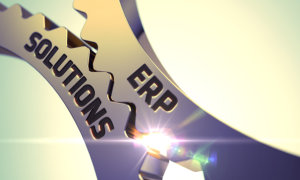 ERP in manufacturing can be used to support lean manufacturing and accounting practices.
ERP in manufacturing can be used to support lean manufacturing and accounting practices.
Lean practices span many aspects of business. Lean emphasizes employee feedback and learning to shave costs, improve efficiencies, enhance product quality, and maximize speed. Often thought of as a car manufacturing term, the concept of lean has been expanded into many other types of manufacturing and multiple industries.
Enterprise resource planning software provides excellent insights into all areas of business. It makes sense that it can enhance lean accounting practices. The insights, information, and data found with an ERP provide the accounting department with feedback on what they are doing well and what can be improved.
Traditional Versus Lean Accounting Practices
Traditional accounting methods allow for much room for interpretation. Companies can shift revenue recognition dates by a day or so, for example, to help boost the next quarter’s outlook if the current quarter has exceeded expectations. Many other ways of enhancing how the numbers look on paper leave loopholes in traditional accounting practices that may not always provide an accurate picture of a company’s financial health.
Lean accounting focuses on cash flow. In the short term, this may force a company’s accounting to look worse, rather than better. Financial metrics in lean accounting are anchored to value streams.
While many small businesses already use lean accounting, mid and large-sized manufacturing firms shifting to lean accounting may find themselves confronted with several potential roadblocks. Surmounting these roadblocks ensures that the temporary discomfort of lowered numbers in reports fades as the benefits of lean accounting are felt throughout your company.
Why Companies Hesitate to Implement Lean Accounting Practices
There are several reasons why companies hesitate to implement lean accounting practices:
- Belief that GAAP requires cost accounting: Three out of four of GAAP’s basic tenants concur with lean accounting practices:
- Materiality – If leaving the information out changes a judgment or decision, it’s material.
- Conservativism – or reporting information in a way that minimizes cumulative income. Lean is also conservative.
- Consistency – treating transactions the same way for consecutive periods. Lean follows standard work principles, and thus, consistency.
- Matching – accounting must match costs with revenue. Lean manufacturing can create faster inventory turns, reducing time delays in matching. Lean also encourages exploration of problems so new timelines can be created.
- Month-end close: Companies often rely on the month-end close to build plans for the next month. However, closing can take up to two weeks, which makes the information two weeks old by the time workers get around to using it. An ERP in manufacturing supports the lean approach of using available information to soft close for the month thus speeding up the next month’s planning process. Using ERP in manufacturing provides plenty of data to plan and build for the coming month rather than waiting for a hard and fast close date.
- Categorizing inventory as asset: Cost accounting categorizes inventory as an asset. However, materials require cash; inventory is necessary for manufacturers to survive. Too much inventory can become a liability. By counting inventory as an asset and listing it as an expense in lean accounting, cash flow reports are more accurate.
- Building up inventory of fabricated items: Some manufacturers prefer to build up an inventory of prefabricated items to anticipate seasonal orders or other peak demand periods. This method ties up a great deal of cash in inventory. Instead, made-to-order provides a lean approach that prevents excess inventory buildup. In lean accounting, focusing on cash flow provides your company with a clearer picture of the true costs of every expenditure.
As you can see, many of these perceived facts are just not true. Lean accounting can work for most manufacturing firms. Using ERP in manufacturing, you can enhance your decision making by working a lean approach at every step in the process.
Learn More – Free Consultation
For a free consultation, call Emerald TC. Emerald TC is an Atlanta-based consulting organization that offers Acumatica, Sage 100cloud, and other solutions to help small and mid-sized businesses improve their productivity and efficiency. Please contact us or call 770.377.8334.

